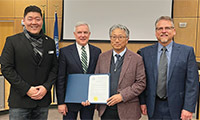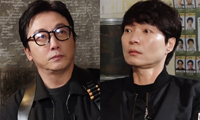By ALEXEI BARRIONUOVO RIO DE JANEIRO LEONARDO BENTO LONGED for vengeance after a policeman killed his brother five years ago. So when he heard that the new “peace police” force in the City of God slum was offering free karate classes, Mr. Bento signed up, hoping he would at least get to beat up the karate instructor.
But the police instructor, Eduardo da Silva, won him over. “I began to realize that the policeman in front of me was just a human being and not the monster I had imagined in my head,” said Mr. Bento, 22. Years of hate and mistrust are thawing in some of Rio’s most violent slums. Pushed to alleviate security concerns before the city hosts the 2014 World Cup and the 2016 Olympic Games, Rio officials have embarked on an ambitious plan to wrest control of the slums, or favelas, from ruthless drug gangs who ruled for years with big guns and abject terror.
The peace officers are central to that effort, moving in after the military police clear the streets in gun battles that can last weeks. They devote themselves to winning over residents scarred by decades of violence - some at the hands of the police.
And the information they receive, officers say, helps them keep the relative peace. For decades, City of God - whose brutal past was immortalized in a 2002 film ? was so dangerous that even the police rarely dared to enter. Those days seem long gone. And life is returning to the streets.
neighborhoods of drug gangs before the 2014 World Cup and the
’16 Olympics. Peace officers, top, in City of God.
But many of the 120,000 residents still struggle to accept that the 315 police officers in their midst are no longer the enemy. Others worry that the police force will leave once the Olympics end. “Nobody likes us here,” Officer Luis Pizarro said during a recent night patrol. “It can be frustrating .”
On a recent evening, officers patrolled along a narrow river choked with garbage and reeking of human and animal waste. Families gathered around makeshift fires. Women danced the samba as men drank cachaca, the Brazilian sugarcane liquor. Almost no one greeted the officers, who walked through an alleyway littered with multicolored paper used to package crack and cocaine. “There goes the Elite Squad,” said one man from a doorway, chuckling as the officers passed by. The hostility is not hard to understand.
For decades, the government refused to take responsibility for the slums, and as drug gangs built caches of weapons it became harder for the police to enter without a firefight. Residents resented the police for abandoning them, and reviled them for the brutality that marked their bloody raids.
City services suffered, and doctors and other professionals began to shun the slums. “People did not have the courage” to retake the slums, said Jose Mariano Beltrame, Rio’s secretary of public security. “People preferred to throw the dust under the carpet to avoid facing the problem.” At least eight people died in City of God in 2008 in the initial raids by the police. Such battles are expected to become more widespread as the police move into new neighborhoods.
So far, they have installed 12 pacification units, covering 35 communities. But Mr. Beltrame plans to establish units in 160 communities by 2014. On a recent Sunday night, a few dozen young men walked freely in Rocinha with rifles and machine guns. One carried a small rocket launcher.
Many gang leaders from slums where the police have taken over are fleeing to a nearby slum, the police said. Mr. Beltrame called it a “complex operation.” He said he could not guarantee that people would not die. Even so, Dilma Rousseff, the leading candidate to be Brazil’s next president, has proposed expanding the model to other cities. Millions of dollars in donations from companies like Coca- Cola and a billionaire businessman, Eike Batista, are also pouring in.
Mr. Beltrame said his main goal was to rid the streets of “weapons of war,” not necessarily to end drug dealing. He is also working, he said, to diminish police corruption. In City of God, drug gang leaders have fled or have been arrested or killed. Some residents say they feel caught between the police and the gangs.
“I am scared even to say ‘good afternoon’ to the police here,” said Beatriz Soares, who fears that drug traffickers might be watching. But her family fears the police as well. When an officer came to her door one day, she said her 3-year-old son “asked him if he was going to kill him.” Still, it is clear that the police presence has changed lives for the better throughout City of God.
School attendance has increased. Earth-moving trucks are dredging the sewage-filled river, and garbage trucks pass through three times a week. The police have also made more than 200 arrests since they retook City of God, and crime has fallen: 6 homicides last year compared with 34 in 2008. Residents are mainly grateful, though some say something intangible has been lost, a certain free-spiritedness.
In the past, gang members often subsidized drug-fueled parties to recruit dealers. The police are now strictly controlling the dances ? limiting alcohol consumption among minors and censoring misogynistic lyrics that glorify drug gangs. Some officers have been pulled off patrol duty to teach English and give music lessons. Officer da Silva said he understood the people’s wariness.
“It is impossible for them to forget their past,” he said. “All I can do is make sure I am open to them.” To make his point, he comes to City of God unarmed and without a bulletproof vest. “Force does not bring about peace,” he said. “It can instill respect, but not trust.”
스마터리빙
more [ 건강]
[ 건강]이제 혈관 건강도 챙기자!
[현대해운]우리 눈에 보이지 않기 때문에 혈관 건강을 챙기는 것은 결코 쉽지 않은데요. 여러분은 혈관 건강을 유지하기 위해 어떤 노력을 하시나요?
 [ 건강]
[ 건강]내 몸이 건강해지는 과일궁합
 [ 라이프]
[ 라이프]벌레야 물럿거라! 천연 해충제 만들기
 [ 건강]
[ 건강]혈압 낮추는데 좋은 식품
[현대해운]혈관 건강은 주로 노화가 진행되면서 지켜야 할 문제라고 인식되어 왔습니다. 최근 생활 패턴과 식생활의 변화로 혈관의 노화 진행이 빨라지고
사람·사람들
more
[한인단체 신년 인터뷰] LA 평통 장병우 회장… “본연 역할로 한반도 평화 실질 기여”
민주평화통일자문회의 LA협의회(이하 LA 평통) 장병우 회장은 6일 본보와의 신년 인터뷰에서 붉은 말의 해인 병오년 새해를 맞아 신년 화두로 …

워싱턴주에 첫 한인 시의장
워싱턴주에서 첫 한인 시의회 의장이 탄생했다. 제이슨 문(한국명 문태원) 머킬티오 시의원이 새해 들어 시의장으로 선출되며 또 하나의 중책을 맡…
국회 방문단 대한인국민회 방문
윤후덕·이해식·김한규 의원과 조오섭 국회의장 비서실장 등 10여 명의 한국 국회방문단이 지난 5일 LA를 찾아 로즈데일 묘지와 국민회관 등 미…
[한인단체 신년 인터뷰] 명원식 파바월드 회장… …
“한인 차세대들이 바르게 자랄 수 있는 토대를 만드는 것이 제가 파바월드의 회장으로 존재하는 유일한 이유입니다”한인사회의 대표적 청소년 봉사 …
LA한인회 멘토 프로그램 10일 스티브 강 위원장
LA 한인회(회장 로버트 안)가 한인사회 차세대 인재양성 노력의 하나로 ‘멘토를 만나다’ 프로그램을 정례화해 실시하고 있는 가운데 그 세 번째…
많이 본 기사
- ICE 요원 총격… 시민권자 여성 사… 2
- 초강경 이민단속, 아시아계도 큰 타격 2
- [스키 기고] 초보자의 수난과 고수의 허세
- 이주자 텍사스 몰린다 가주는 유입자 최하위
- 케빈 김 주한 미 대사대리 전격 이임
- 42억 횡령→징역형 집유 받았는데도..황정음 소속사 여전히 미등록
- 가주 등 5개주 연방 아동보육 예산 전격 동결
- 마크롱 “美, 일부 동맹국에 등 돌리고 국제규범서 벗어나”
- 유엔기후협약, 美 탈퇴에 “자책골…재가입문 열려있어”
- 李대통령 “에너지 문제로 국제 혼란…에너지대전환 잘 준비해야”
- 美, ‘외국산 드론·부품 수입 금지’ 예외 허용…삼성 제품 포함
- ‘故안재환과 사별’ 정선희, 재혼 질문에 솔직 답변 “국내에선 의향 없어”
- 韓 여야, 이혜훈 청문회 19일 하루 잠정 합의… “충분히 질의”
- 브로드웨이 뮤지컬 공연을 반값에…
- 美, 인천에 본부 둔 녹색기후기금 탈퇴… “자금지원 안해”
- “모든 소송 철회하고 내분사태 원만히 해결하길”
- 軍권력기관 방첩사, 계엄 여파로 49년 만에 역사 속으로
- 팰팍 타운 77만달러 적자 놓고 정치권‘충돌’
- LAX 무인열차 6월엔 개통되나
- 눈 내린 정경
- [발언대] L.A. 갈비의 유래
- 뉴욕 등 5개주 연방아동보육예산 지원 전격 중단
- 부고-박철환 씨 별세
- 초강경 이민단속, 아시안 커뮤니티도 큰 타격
- 형제교회 올해도 1만달러 ...꿈나눔북클럽 2,000달러, 시애틀진보연대 500달러
- 경관이 항공기내 성추행 LA행서 신체노출 ‘유죄’
- D-SNP 한인 가입자들, 그로서리 혜택 놓친다
- 존 하바 감독과 18년만에 결별
- 치매 예방효과 탁월한 활동은 ‘춤’…… 1
- 제5대 회장에 김길영 회장 연임
- “주택 부족, 워싱턴 경제 위험 초래”
- 탁재훈·신정환, 드디어 컨츄리꼬꼬 재회.. “또 잡힌 겁니까?”[노빠꾸]
- 2026년은?
- MD 몽고메리서 음주운전자 140여명 적발
- 아펜젤러 한국선교 140주년 기념 미주 순회공연
- 안정적 장학사업 체계 구축
- ‘연방 하원 민주·상원 공화’가능성 커
- 한인 제이슨 문, 머킬티오 시의장됐다...5일 첫 회의 주재한 가운데 ‘한인의 날’지지 선언문 채택
- [독자 투고] 땅 끝 마을 파타고니아… 1
- 연예계 은퇴합니다..돌연 충격 선언한 조윤우·소희·이태임
- ‘맥립’에 갈비고기 없다 맥도널드 허위광고 소송
- ‘기빙트리’ 캠페인서 총 1만7천달러 조성
- 애난데일서 뺑소니 사고 보행자 중태…제보 기다려
- “새해에는 영어 마스터합시다”
- “마두로 체포 환영하는 시민 잡아라”…휴대폰 뒤지고 불심검문도
- 41세 구혜선, 석사 논문 합격→조기졸업.. “다음은 박사 필승!”
- 목·어깨·팔이 갑자기 찌릿하다면?… ‘근막동통증후군’ 일수도
- 은퇴준비를 더 이상 미루면 안되는 이유
- ‘데이트 폭력 폭로’ 재키와이, 돌연 입 열었다 “흉기·스토킹 NO”
- “공업용 실리콘을 얼굴에”..故 선풍기 아줌마, 충격적인 성형 부작용[꼬꼬무]
1/5지식톡

-
 미 육군 사관학교 West Poin…
0
미 육군 사관학교 West Poin…
0https://youtu.be/SxD8cEhNV6Q연락처:wpkapca@gmail.comJohn Choi: 714-716-6414West Point 합격증을 받으셨나요?미 육군사관학교 West Point 학부모 모…
-
 ☝️해외에서도 가능한 한국어 선생님…
0
☝️해외에서도 가능한 한국어 선생님…
0이 영상 하나면 충분합니다!♥️상담신청문의♥️☝️ 문의 폭주로 '선착순 상담'만 진행합니다.☎️ : 02-6213-9094✨카카오톡ID : @GOODEDU77 (@골뱅이 꼭 붙여주셔야합니다…
-
 테슬라 자동차 시트커버 장착
0
테슬라 자동차 시트커버 장착
0테슬라 시트커버, 사놓고 아직 못 씌우셨죠?장착이 생각보다 쉽지 않습니다.20년 경력 전문가에게 맡기세요 — 깔끔하고 딱 맞게 장착해드립니다!장착비용:앞좌석: $40뒷좌석: $60앞·뒷좌석 …
-
 식당용 부탄가스
0
식당용 부탄가스
0식당용 부탄가스 홀세일 합니다 로스앤젤레스 다운타운 픽업 가능 안녕 하세요?강아지 & 고양이 모든 애완동물 / 반려동물 식품 & 모든 애완동물/반려동물 관련 제품들 전문적으로 홀세일/취급하는 회사 입니다 100% …
-
 ACSL 국제 컴퓨터 과학 대회, …
0
ACSL 국제 컴퓨터 과학 대회, …
0웹사이트 : www.eduspot.co.kr 카카오톡 상담하기 : https://pf.kakao.com/_BEQWxb블로그 : https://blog.naver.com/eduspotmain안녕하세요, 에듀스팟입니다…
케이타운 1번가
오피니언
 이상희 UC 리버사이드 교수 인류학
이상희 UC 리버사이드 교수 인류학 오렌지 상자와 함께하는 2026년
 오세정 서울대 물리천문학부 명예교수·전 총장
오세정 서울대 물리천문학부 명예교수·전 총장 [오세정 칼럼] 병오년 새해, 한국의 과제
 존 안 / LA 거주
존 안 / LA 거주 [독자 투고] 땅 끝 마을 파타고니아 여행 유감
 이리나 수필가
이리나 수필가 [윌셔에서] 레디 코어(Ready Core)의 해를 맞으며
 이영창 / 한국일보 논설위원
이영창 / 한국일보 논설위원 [지평선] 67년생 현역 축구선수 미우라

[왈가 왈부] “이혜훈 청문회까지 지켜봐야”… 국민 눈높이에 맞나요
 정숙희 논설위원
정숙희 논설위원케네디에 관한 네 개의 이야기
 마크 A. 시쎈 / 워싱턴포스트 칼럼니스트
마크 A. 시쎈 / 워싱턴포스트 칼럼니스트 [마크 A. 시쎈 칼럼] 트럼프의 20가지 업적
 김동찬 시민참여센터 대표
김동찬 시민참여센터 대표 [미국은 지금] 2026년 ‘손님’ 의식 버리고 ‘주인’ 입장을
1/3지사별 뉴스

팰팍 타운 77만달러 적자 놓고 정치권‘충돌’
뉴저지 팰리세이즈팍 타운정부가 지난해 77만5,000달러 재정적자가 발생한 것을 두고 정치권이 강하게 충돌하면서 지역 한인사회가 술렁이고 있다…
뉴욕 등 5개주 연방아동보육예산 지원 전격 중단

‘연방 하원 민주·상원 공화’가능성 커
올해 11월3일 미 전역에서 중간선거가 실시된다. 이번 선거에서는 연방 하원 전체 435석과 함께 연방 상원 100석 가운데 35석을 새로 선…
“주택 부족, 워싱턴 경제 위험 초래”

베네수 이어 그린란드…트럼프, 2년차 벽두부터 美우선주의 거친 질주
2026년 새해 벽두부터 도널드 트럼프 대통령의 행보가 심상치 않다.집권 2기 2년차를 맞아 자신과 지지층의 이념이라 할 ‘미국 우선주의’ 구…
중부 캘리포니아 ‘한인 이민사’ 나왔다

오늘 하루 이 창 열지 않음 닫기 




















































.png)


댓글 안에 당신의 성숙함도 담아 주세요.
'오늘의 한마디'는 기사에 대하여 자신의 생각을 말하고 남의 생각을 들으며 서로 다양한 의견을 나누는 공간입니다. 그러나 간혹 불건전한 내용을 올리시는 분들이 계셔서 건전한 인터넷문화 정착을 위해 아래와 같은 운영원칙을 적용합니다.
자체 모니터링을 통해 아래에 해당하는 내용이 포함된 댓글이 발견되면 예고없이 삭제 조치를 하겠습니다.
불건전한 댓글을 올리거나, 이름에 비속어 및 상대방의 불쾌감을 주는 단어를 사용, 유명인 또는 특정 일반인을 사칭하는 경우 이용에 대한 차단 제재를 받을 수 있습니다. 차단될 경우, 일주일간 댓글을 달수 없게 됩니다.
명예훼손, 개인정보 유출, 욕설 등 법률에 위반되는 댓글은 관계 법령에 의거 민형사상 처벌을 받을 수 있으니 이용에 주의를 부탁드립니다.
Close
x